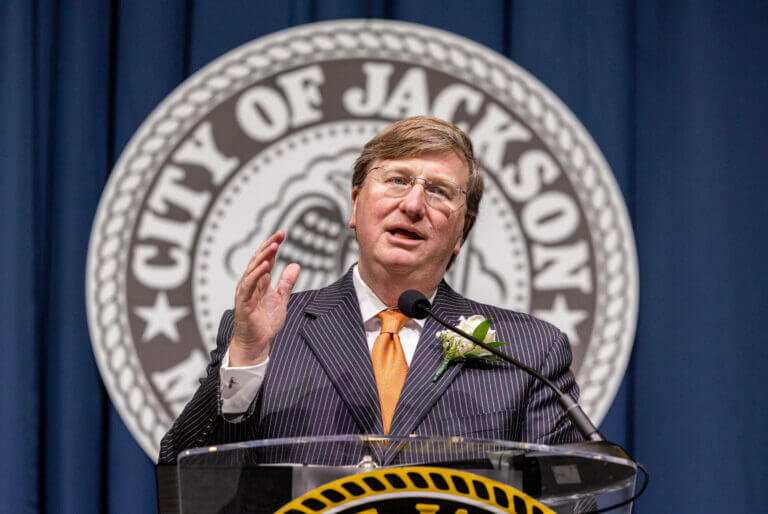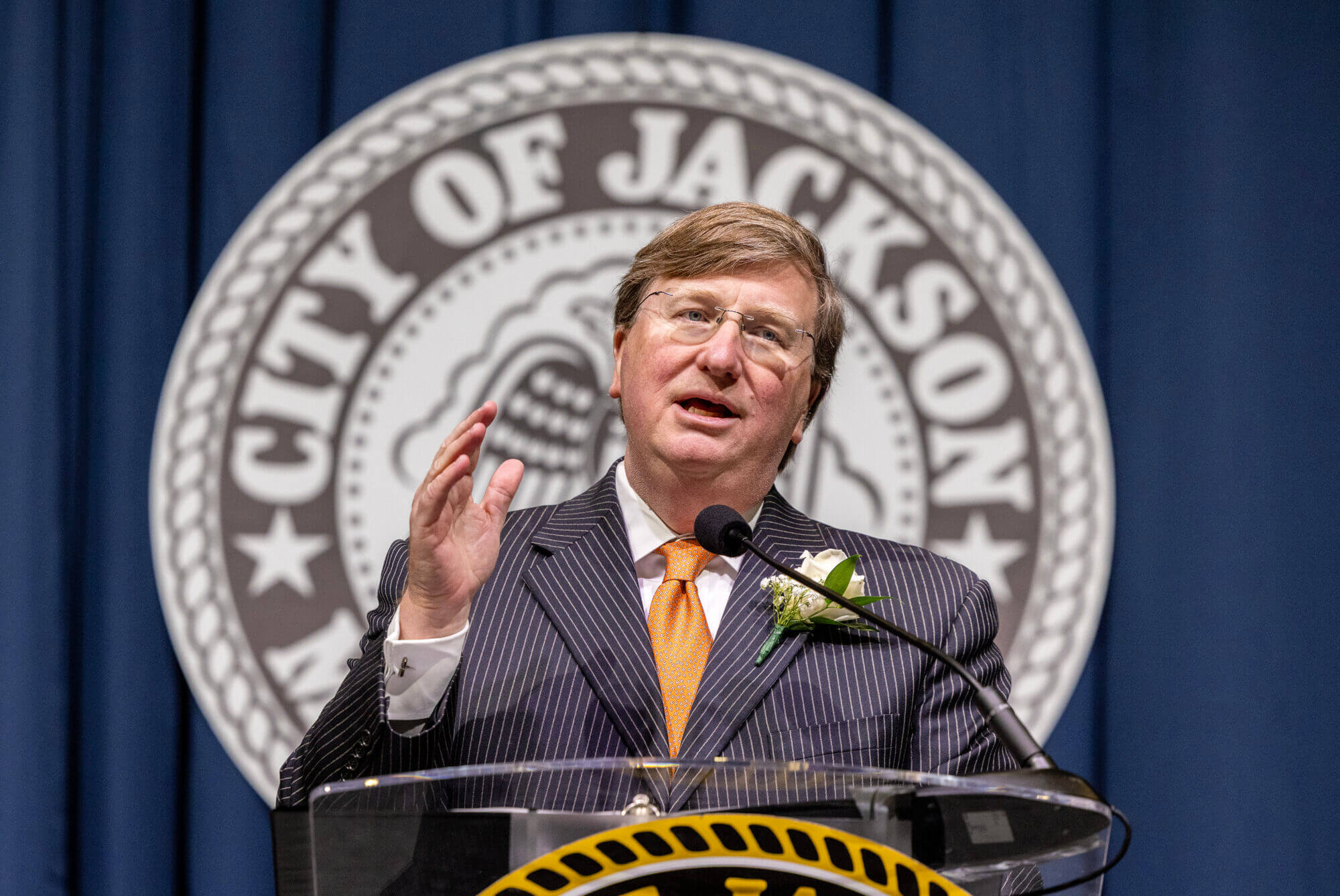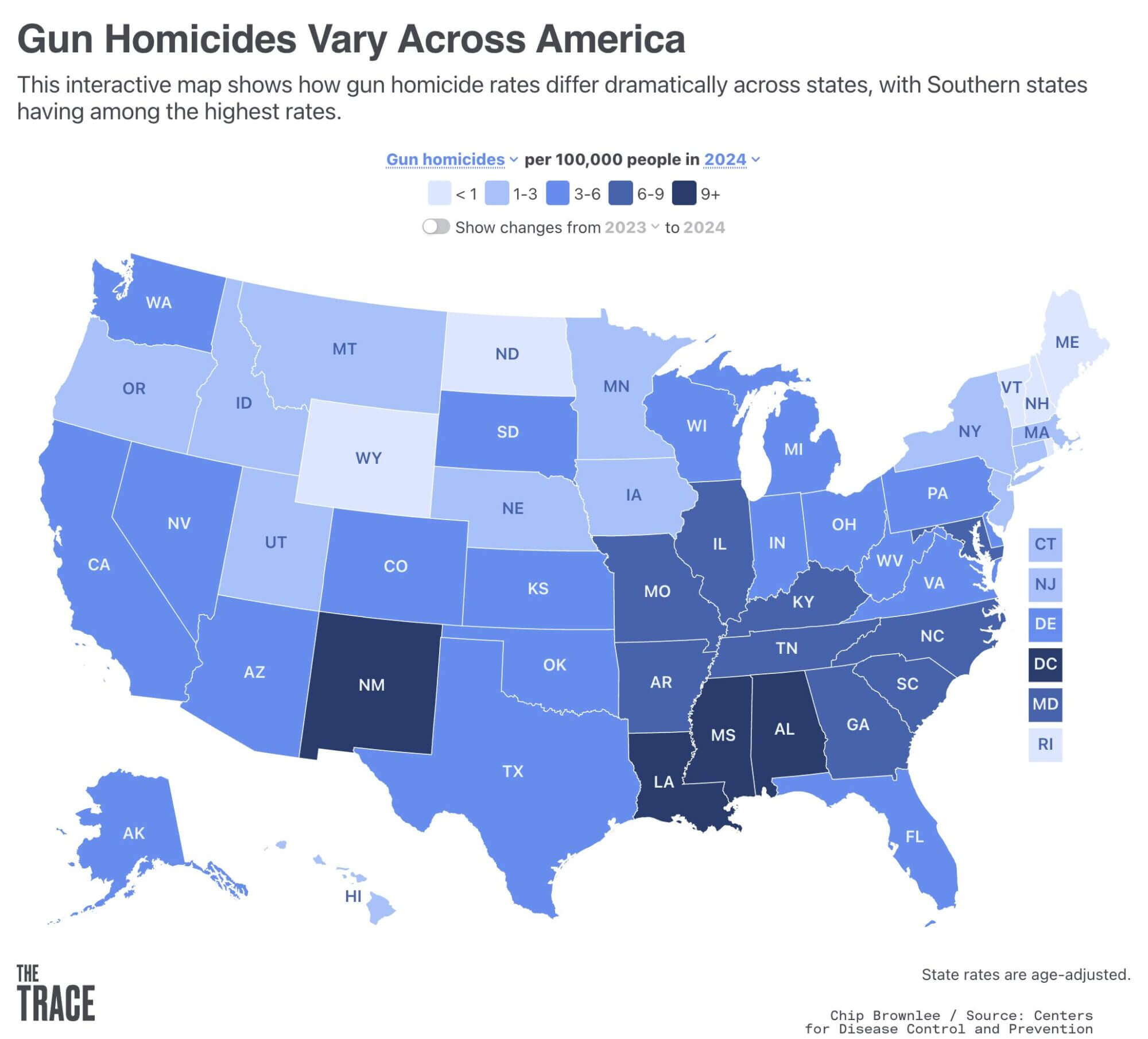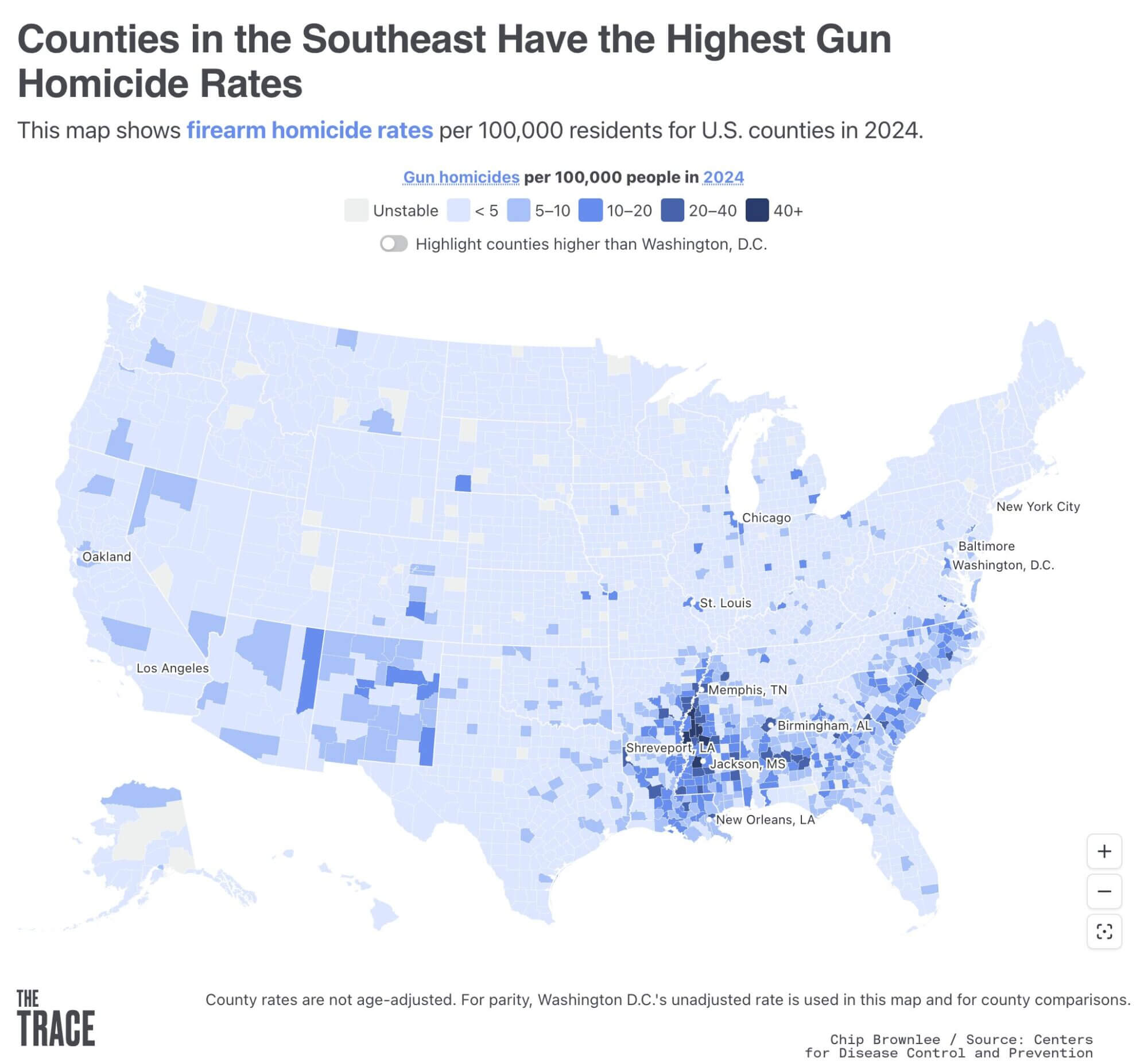

This article was reported and published by The Trace, a nonprofit newsroom investigating gun violence in America. Click here to subscribe to its newsletters.
When Mississippi Governor Tate Reeves announced he was sending his state’s National Guard troops to Washington, D.C., at President Donald Trump’s request, he framed the move as a matter of public safety. “Crime is out of control there, and it’s clear something must be done to combat it,” Reeves declared.
But several parts of Reeves’s state are worse off than Washington. At least 17 Mississippi counties endured more gun homicides per capita than the nation’s capital in 2024. That includes Hinds County, home to the state capital of Jackson, where the rate was nearly twice that of Washington’s last year.
Reeves isn’t alone. Five other Republican governors — in Louisiana, Tennessee, South Carolina, Ohio, and West Virginia — also dispatched guard units to Washington in August, echoing Trump’s rhetoric about a city in crisis.
But a Trace analysis of Centers for Disease Control and Prevention data shows that most of those states suffer from some of the nation’s highest gun homicide rates, with some areas worse than the capital Republicans portray as especially dangerous.
“Why is there not more outrage in those states about their higher violence rates?” said Shani Buggs, a violence prevention researcher at the University of California, Davis. “Spending state resources to outsource people to other cities doesn’t make sense. If this is supposed to be a strategy for reducing violence, why aren’t they employing it within their own states?”
The Trace reached out to the six governors that have deployed guard units to Washington and asked if they were planning to send troops to violent crime hotspots in their own states. One responded.
“Ohio has traditionally helped the District of Columbia, Ohio mayors, and other states when they request assistance from the Ohio National Guard or the Ohio State Highway Patrol,” said Daniel Tierney, a spokesperson for Governor Mike DeWine. Tierney noted that the state had deployed the guard to Cleveland and Columbus at the behest of Democratic mayors to help quell protests over the 2020 police murder of George Floyd.
The Data
The nation’s capital has long been a political scapegoat for Republicans, who point to its homicide rate as evidence of Democratic mismanagement. Last year, Washington’s gun homicide rate stood at 18.7 per 100,000. If it were a state, it would have the nation’s highest rate. But Mississippi’s homicide rate was nearly as high — 16.9 per 100,000 — and Tennessee, South Carolina, and Louisiana each ranked in the top 10 states for gun homicides. Ohio and West Virginia fall closer to the national average.

Washington is almost entirely urban, lacking the suburban and rural areas that help pull down most statewide averages. The district’s land area — about 68 square miles — is smaller than most counties but more comparable in scale, making counties a more fitting benchmark than entire states. County-level data also provides consistency, as it is a standard unit in federal public health reporting, unlike city-level data, which can be uneven.
Our analysis of counties found areas within several Republican-controlled states that face higher levels of gun violence than Washington. Four of the six states that have deployed guard units to Washington have at least one county that’s deadlier. Mississippi has the most counties with gun homicide rates exceeding Washington’s, at 17.

“From a rational perspective, there’s very little to support these states outsourcing people to communities that are not asking for this,” Buggs said. “Meanwhile, there have been cuts to violence prevention strategies, health care, Medicaid, affordable housing, social services, and youth job programs. Those are the things communities are asking for — not this type of intervention.”
Annual gun homicide rates fell by double-digits last year in the three cities Trump has focused most of his attention on: Washington, Chicago, and Baltimore. Meanwhile, at least 31 of 82 Mississippi counties saw their rates increase. In Louisiana, 19 parishes endured increases, and as did 36 Tennessee counties.
In New York, where Trump has also threatened to send the guard, 66 Mississippi counties, 50 Louisiana parishes, 38 South Carolina counties, and 20 Tennessee counties had more gun homicides per capita last year than the Bronx, the New York City borough with the highest rate. Ohio had eight deadlier counties, while West Virginia had one.
A double standard?
The governors sent troops to Washington, but at home they’ve taken a more subtle approach, coordinating with federal and local law enforcement partners — something the Trump administration reportedly has not done with leaders in any of the states to which he’s mentioned deploying troops.
Louisiana Governor Jeff Landry, the only one of the six governors to have served in the National Guard (or in the military at all), has used the guard for security within his state. He deployed the guard to assist police in the aftermath of the New Year’s truck attack and shooting on Bourbon Street in New Orleans, and again a few weeks later for the Super Bowl.
Four Louisiana parishes — as counties are called there — have gun homicide rates higher than Washington’s, including Orleans Parish and East Baton Rogue Parish, home to the state’s largest city and state capital, respectively, The Trace found. Caddo Parrish, where Shreveport is located, also had a higher rate, as did Rapides, a solidly Republican county that includes Alexandria.
In Baton Rouge, Sateria Tate-Alexander, who runs the nonprofit anti-violence group AGILE, said Landry’s deployment to Washington is a waste of resources that could be used to help reduce violence in her community. AGILE’s violence intervention programs are at risk of shutting down after the city’s new mayor, a Republican, canceled a federally funded grant. “It actually is devastating because we see it all the time, the wasted resources or the displacement of resources,” she said. “It makes me angry.”
She said the Louisiana cities suffering from high rates of violence need more state support for community programs. “Violence is a complex issue, so we have to have an equally complex solution to actually be effective,” she said. “What we’re seeing is the opposite.”
In Memphis, where violence is worse than in Washington, community groups say they’ve also been left in the lurch — even as Tennessee Governor Bill Lee sends guard troops to the nation’s capital. “It makes me feel like they’re ignoring the violence — that they’re not concerned about what’s going on here in the city of Memphis,” said Brian Tillman, a violence interrupter with the 901 B.L.O.C. Squad, a violence prevention team that was recently furloughed after its budget was slashed.
“If you have resources to allocate to D.C., why wouldn’t you have resources to allocate to the city of Memphis,” he said. “If you’re not addressing the root causes, then you’re not part of the solution, which makes you part of the problem.”
Chip Brownlee is a reporter at The Trace covering federal policy related to violence prevention and firearms. He is also the author of The Trajectory newsletter, which spotlights the people, policies, and programs grappling with America’s gun violence crisis. Before joining The Trace as an investigative fellow in June 2020, Chip Brownlee worked as a reporter and the editor-in-chief of his collegiate newspaper, The Auburn Plainsman. He also covered the state legislature, governor, courts, and elections for the Alabama Political Reporter. As an undergraduate, Chip studied political science and journalism at Auburn University. He also earned an M.A. with a concentration in politics from the Columbia Journalism School.
Jennifer Mascia is a senior news writer and founding staffer at The Trace. She previously covered gun violence at The New York Times. In her dozen years on this beat, she’s covered community gun violence, the intersection of domestic violence and guns, and the growing role of firearms in public life.
- Mississippi Explained News Quiz: School choice and prison health care reform appear dead - March 2, 2026
- Two plead guilty to collecting pandemic-related unemployment benefits while in prison - March 2, 2026
- Michael Watson confirms he won’t seek third secretary of state term, hints at higher office - March 2, 2026